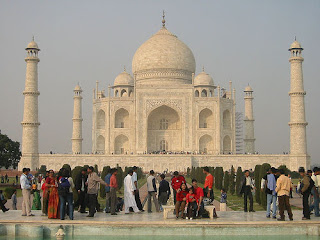TITLE OF ARTICLE: Congo rebels make roadblock out of bodies <http://www.cnn.com/2008/WORLD/africa/11/13/congo.fighting.ap/index.html>
The article, which was updated on November 13, 2008, is about the serious war in Democratic Republic of Congo, which seems to be not easing at the moment. In addition, the war might draw in some other countries in the region.
The road that leads into rebel-controlled Congo had roadblocks made from the dead bodies of the army by the Congo rebels as a meaning of warning to the government army and the citizens of Congo. This shows that the war in Democratic Republic of Congo is not easing and will not ease for a while. On Wednesday, Georges Chicoty, Angolan Deputy Foreign Minister, said that Angola was prepared to send troops to Democratic Republic of Congo in fear of the conflict engulfing the region. Some reporters have seen some soldiers who seemed like Angolans, but Angola opposed to it because if the presence of Angolans in Congo is announced, it might draw in Rwanda, who sent troops to support Nkunda, too. Both sides, the government troops and the rebels, blamed everything on each other such as the violation of the cease-fire and the Tuesday's clash.
I think this article is news worthy because the news is very recent. Also, the huge conflict between the government troops and the rebels is quite interesting as the same kind of war had happened before and now it's caused by some violations of the cease-fire. Besides, the size of the war is quite big; the war might draw in other countries in the region. In addition, the war is really conflicted, and people might want to see who will going to win the war.

